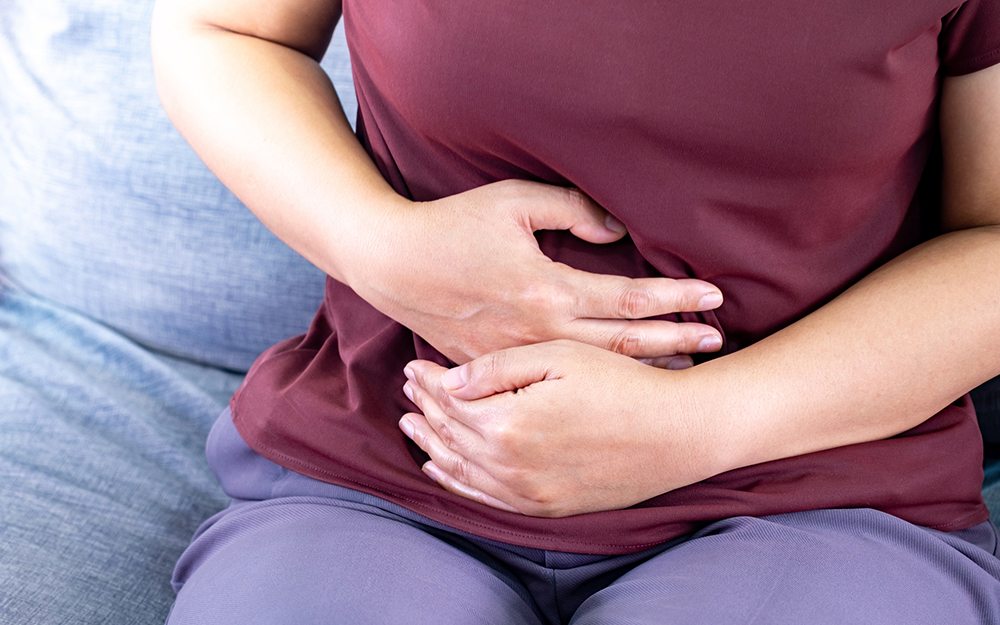What Is Cannabinoid Hyperemesis Syndrome?
Date
November 21, 2022
Credits

Date
November 21, 2022
Credits
Medical providers featured in this article
In Brief
{{cta-block}}
Marijuana and cannabis products are commonly understood to relieve nausea, and they even are prescribed to control pain and vomiting in patients who are undergoing chemotherapy.
But for a minority of people, heavy, long-term marijuana use can cause severe and repeated vomiting spells—a paradox clinicians don’t entirely understand.
Cannabinoid hyperemesis syndrome (CHS) is a rare condition that impacts people who have used cannabis daily for years. Dr. Sam Torbati—medical director of the Ruth and Harry Roman Emergency Department at Cedars-Sinai Medical Center—says that although CHS disrupts lives, it is treatable and reversible when patients are willing to stop using cannabis.
{{providers}}
"Most people who use cannabinoids long-term enjoy the effects—relaxation and euphoria—and they don’t want to give it up," Dr. Torbati says.
"The advice we give is straightforward: Be honest with your doctors about your use of marijuana and anything else. The more doctors know about your health history and your habits, the better we can diagnosis and treat you."
"The advice we give is straightforward: Be honest with your doctors about your use of marijuana and anything else. The more doctors know about your health history and your habits, the better we can diagnosis and treat you."
What are signs of cannabinoid hyperemesis syndrome?
CHS was first identified in 2004 and is easily recognizable for emergency room doctors, if not well understood, Dr. Torbati says. There is no way to test for the condition, which causes repeated bouts of vomiting of varying frequency and duration. But Dr. Torbati says patients with CHS can often be identified by exaggerated “hurling” and their poor response to traditional anti-nausea medications.
Researchers don’t have data about which or how many people develop CHS, but Dr. Torbati says it only shows up in heavy users whose brain receptors have changed how they to respond to cannabinoids.
"They’re miserable, and their brain chemistry is truly altered by cannabinoids," he says. "It’s like a poisoning."
Dr. Torbati says the rare condition is becoming more common, perhaps because of increased availability of more potent marijuana products in different forms, like vapes and edibles.
How is cannabinoid hyperemesis syndrome treated?
Anyone who is vomiting violently and can’t stop should go to the hospital immediately, Dr. Torbati says. In such patients, emergency room doctors always perform a risk assessment to ensure the vomiting isn’t caused by an intestinal obstruction or other medical emergencies.
Once they rule out other underlying issues, doctors can screen patients for CHS and administer effective anti-nausea drugs that usually provide relief in about 10 minutes.
"We need patients to be honest so we don’t put them through unnecessary tests and expose them to radiation from CT scans, and so we can choose the most effective medication," Dr. Torbati says.
"Common anti-nausea medications don’t work for these attacks, which can cause dehydration and can seriously affect your health."
After they’re stable, patients usually are discharged with anti-nausea medications and instructions to stay hydrated and eat bland foods while their stomachs recover. Hot showers and capsaicin creams can work temporarily to relieve symptoms, but won’t make CHS go away, Dr. Torbati says.
How long does it take for cannabinoid hyperemesis syndrome to go away?
The only cure for CHS is cessation—to quit using cannabis.
Cannabinoids are stored in the body’s fat cells, so the longer somebody has been using marijuana and the more fat cells they have, the longer it takes the chemical compounds to leave the body. It could take up to six months without using marijuana for people to feel better.
Dr. Torbati says heavy marijuana users with CHS are often reluctant to accept their diagnosis, which can lead to expensive, unnecessary tests and frequent hospital visits.
"These patients are truly suffering, and the challenge I have as a clinician is to figure out how to motivate them to accept the cause of their illness," Dr. Torbati says.
The debate over the benefits of using marijuana, in general, can continue, Dr. Torbati says. Marijuana use is not considered a disorder until it causes disease or negative social consequences. But for those who develop CHS, a doctor can them help figure out how to stay away from marijuana—possibly through outpatient substance abuse treatment, support groups or twelve-step programs.
Dr. Torbati says patients should always be honest about their habits with their medical providers and not fear judgment or punishment. But they should also be willing to accept medical advice.
"We can help patients, but this is one area where we need their help, too," he says.






